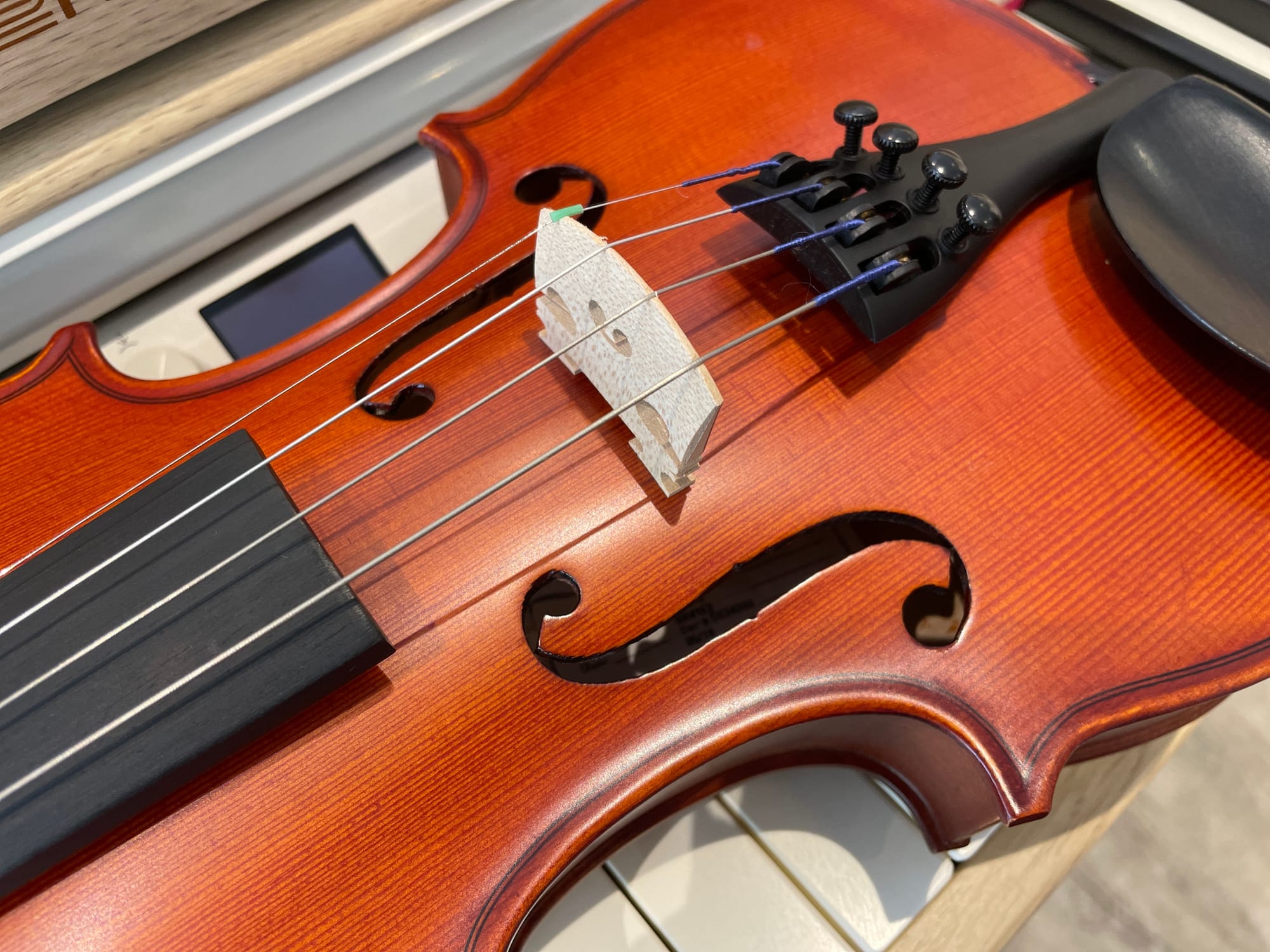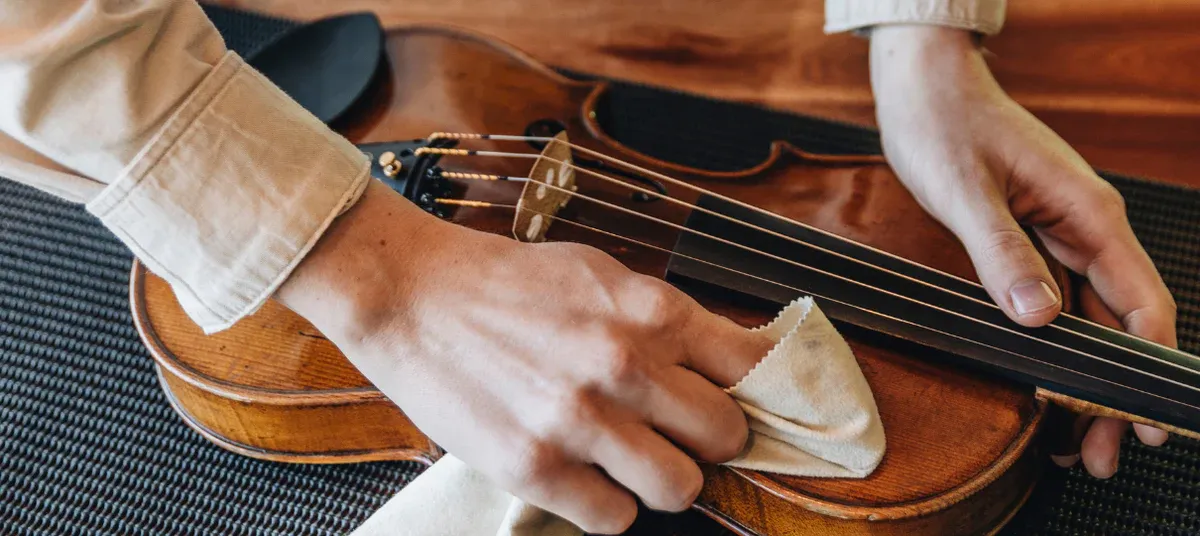Tips on Violin Maintenance and Care
Proper violin maintenance is essential for preserving its sound quality and longevity. Here are some detailed tips.

Proper violin maintenance is essential for preserving its sound quality and longevity. Here are some detailed tips:
Clean Regularly

After each practice session, gently wipe down the violin with a soft, lint-free cloth to remove rosin dust and sweat. This prevents buildup that can harm the wood and varnish. For tougher grime, use a violin cleaner designed for delicate finishes.
Store Safely

Always store your violin in its case when not in use. Ensure the case is sturdy and padded to protect against physical damage and environmental changes. Avoid placing the violin near radiators or in direct sunlight, as extreme temperatures and humidity can cause the wood to warp or crack.
Check the Bridge

Regularly inspect the bridge to make sure it is standing straight and centered between the f-holes. An angled or misaligned bridge can affect the instrument's sound and structural integrity. Adjust it carefully if needed, or seek professional help.
Loosen the Bow

After playing, always loosen the bow hair to relieve tension. Keeping the hair tight when not in use can cause the bow to warp and lose its camber (the slight curve).
Change Strings

Strings should be replaced every 3-6 months, depending on how often you play. Over time, strings lose their tone and elasticity, which can affect your sound quality and playing experience. Clean the strings regularly with a dry cloth to prolong their life.
Humidity Control

Violins are sensitive to humidity changes. Use a hygrometer to monitor the humidity levels in your storage area, keeping them between 40 and 60%. In dry environments, use a violin humidifier to prevent the wood from drying out and cracking.
By following these tips, you can ensure your violin remains in excellent condition, providing you with beautiful music for years to come.
Find us on Social Media
Subscribe to Soundskool's blog for more insightful article!

